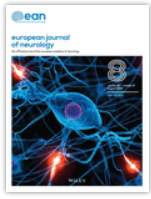Sham-controlled randomized multicenter trial of tDCS for prolonged disorders of consciousness

https://doi.org/10.1111/ene.15974
Background
Transcranial direct current stimulation (tDCS) has shown to improve signs of consciousness of a subset of patients with disorders of consciousness (DoC). However, no multicenter study confirmed its efficacy when applied during rehabilitation.
Objective
In this randomized controlled double-blind study, we tested the effects of tDCS in patients with prolonged DoC while being in rehabilitation at the group level and according to their diagnosis and etiology to better target DoC patients who might benefit from tDCS.
Methods
Patients received 2 mA-tDCS or sham applied over the left prefrontal cortex for 4 weeks. Behavioral assessments were performed weekly and up to 3-months follow-up. Analyses were conducted at the group and subgroup levels based on the diagnosis (minimally conscious state – MCS and unresponsive wakefulness syndrome) and the aetiology (traumatic or non-traumatic). Interim analyses were planned to continue or stop the trial.
Results
The trial was stopped for futility when 62 patients from 10 centers were enrolled (44±14 years, 37±24.5weeks post-injury, 18 women, 32 MCS, 39 non-traumatic). While, at the group level, we did not find any treatment effect, the subgroup analyses at 3-month follow-up revealed a significant improvement for patients in MCS and from traumatic etiology.
Conclusions
tDCS during rehabilitation does not seem to enhance patients’ recovery. However, diagnosis and etiology appear to be important factors leading to a response to the treatment. These findings bring novel insights into possible cortical plasticity changes in DoC patients given these differential results according to the subgroups of patients.